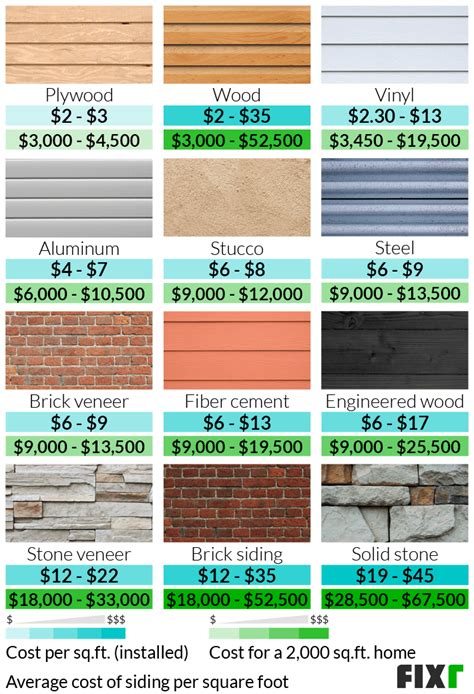Uncover the Real House Siding Costs Now
Thinking about replacing your house siding? It's a significant home improvement project that can dramatically enhance your curb appeal and protect your home. But before you even think about picking a color, you need to understand the real costs involved. This isn't just about the materials; it's about a comprehensive look at the total investment. This article will break down the various factors influencing the final price tag, helping you budget effectively and make informed decisions.
What Factors Determine House Siding Costs?
Several key elements contribute to the overall expense of siding your house. Let's delve into the most influential ones:
1. Type of Siding:
This is arguably the most significant factor. Different materials come with drastically different price points.
- Vinyl Siding: Generally the most affordable option, offering a wide range of styles and colors. However, it may not be as durable as other materials.
- Fiber Cement Siding: A popular mid-range choice, known for its durability, low maintenance, and fire resistance. It's more expensive than vinyl but typically lasts longer.
- Wood Siding: Offers a classic, natural look but requires significant maintenance and is susceptible to rot, insect damage, and weather degradation. It's usually the most expensive option.
- Metal Siding (Aluminum or Steel): Durable and low-maintenance, offering excellent protection against the elements. The cost can vary depending on the type of metal and finish.
- Brick Siding: Extremely durable and aesthetically pleasing, but also the most expensive option. Installation can be complex and labor-intensive.
2. House Size and Complexity:
The larger your house and the more intricate its design (e.g., multiple gables, dormers, or unusual angles), the more siding material and labor will be required, significantly increasing the overall cost.
3. Labor Costs:
Labor costs can vary widely based on your location, the contractor's experience, and the complexity of the job. Expect a significant portion of your total cost to be attributed to labor. Always get multiple quotes from reputable contractors.
4. Preparation and Removal of Old Siding:
If you're replacing existing siding, the cost of removing the old material and properly preparing the underlying structure (e.g., repairing sheathing, addressing moisture issues) should be factored into your budget. This can sometimes be a surprisingly large expense.
5. Permits and Inspections:
Depending on your local regulations, you may need to obtain permits and undergo inspections throughout the process. These costs should be included in your overall budget.
6. Additional Features:
Adding features like trim, flashing, or specialized window and door surrounds will increase the total cost.
How Much Does House Siding Typically Cost?
Providing an exact figure is impossible without knowing the specifics of your project. However, here's a general range based on material:
- Vinyl Siding: $3-$12 per square foot (including installation)
- Fiber Cement Siding: $8-$20 per square foot (including installation)
- Wood Siding: $10-$30+ per square foot (including installation)
- Metal Siding: $8-$20 per square foot (including installation)
- Brick Siding: $20-$40+ per square foot (including installation)
Remember: These are estimates. The actual cost will depend on the factors mentioned above.
What are the hidden costs associated with house siding replacement?
Hidden Costs to Consider:
Many homeowners overlook these crucial expenses:
- Unexpected repairs: During siding removal, you might uncover underlying issues requiring extra work and materials.
- Waste disposal: Properly disposing of old siding material can add to the final cost.
- Landscaping restoration: After installation, you may need to restore your landscaping.
- Insurance: Ensure you have adequate coverage during the project.
How can I get accurate siding cost estimates?
To get accurate estimates, contact several reputable contractors in your area. Provide them with detailed information about your house, the type of siding you're considering, and any special requirements. Compare their quotes carefully, paying attention not only to the price but also their experience, reputation, and insurance coverage.
What questions should I ask potential contractors?
Questions to Ask Contractors:
- What type of siding do you recommend for my home and why?
- What is your experience with this type of siding installation?
- Can you provide references from previous clients?
- What is your warranty policy?
- What is included in your quote?
- What is your payment schedule?
- When can you start and complete the project?
By carefully considering these factors and asking the right questions, you can uncover the real house siding costs and make an informed decision that fits your budget and enhances your home's value. Remember, investing time in thorough research and planning will ultimately save you money and stress in the long run.

